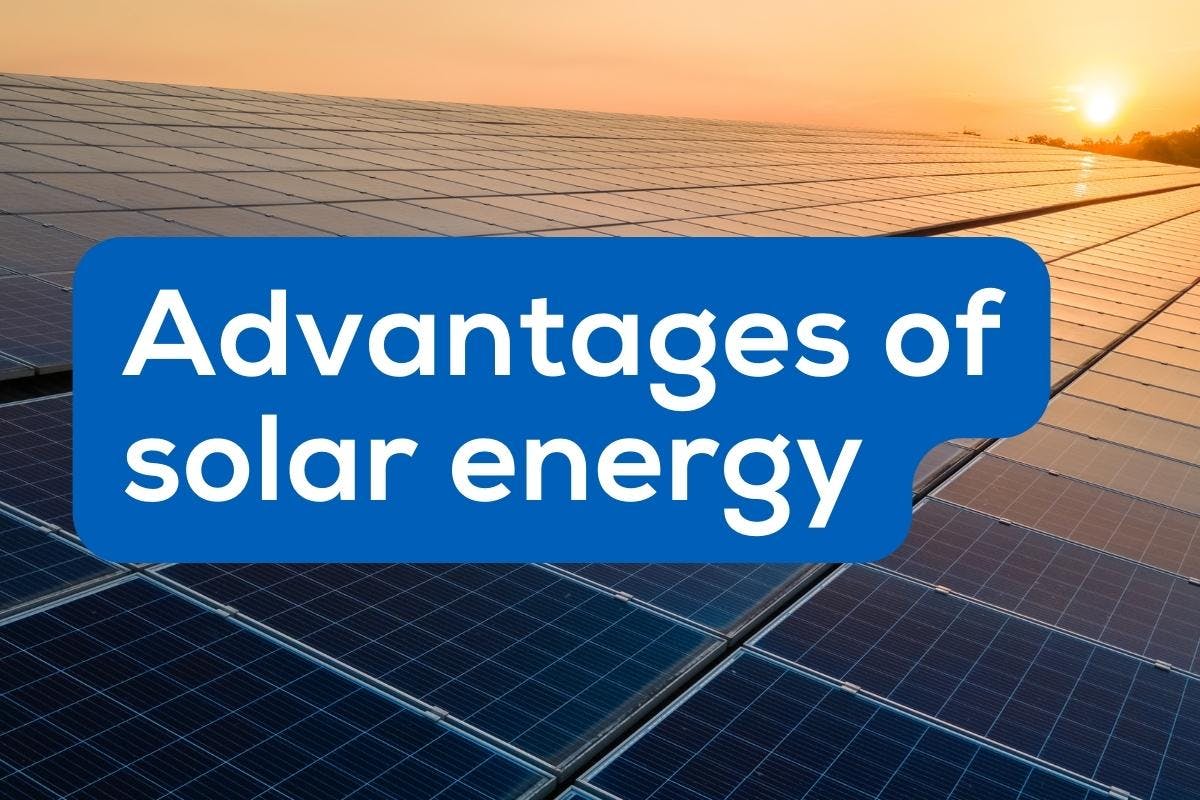Switch to Cost-Effective Clean Energy with Simply Solar Illinois
Switch to Cost-Effective Clean Energy with Simply Solar Illinois
Blog Article
How Solar Energy Can Aid You Save Money and Minimize Your Carbon Footprint
The combination of solar power into your power portfolio provides a compelling opportunity for both financial cost savings and ecological stewardship. By taking advantage of the sun's energy, house owners can dramatically decrease their regular monthly energy costs while likewise guarding against the changability of future energy expenses. In addition, the change to solar adds to a significant decline in carbon exhausts, straightening individual financing with broader ecological goals. As different government motivations appear, the question develops: exactly how can one properly navigate the preliminary investments and recurring benefits of solar modern technology to make best use of both economic and environmental gains?
Understanding Solar Power Cost Savings
While the change to solar power typically entails an initial investment, understanding solar power financial savings is important for home owners and companies alike. Solar power systems can considerably minimize electrical energy expenses by taking advantage of the sun's energy, converting right into significant long-term monetary advantages.
Moreover, solar energy systems may receive various financial incentives, including tax obligation credit scores and rebates, better improving their cost-effectiveness. The schedule of internet metering permits customers to offer excess power back to the grid, creating an added revenue stream. These aspects add to the overall savings related to solar energy.

Along with route financial cost savings, solar energy supplies the included benefit of boosting building value. Homes geared up with solar panels are typically much more eye-catching to customers, as they guarantee lower energy prices - Simply Solar Illinois. Recognizing these components is crucial for anyone taking into consideration solar power, as it highlights not just the possible economic gains, but likewise the broader environmental and financial advantages of adopting renewable power services
Preliminary Costs vs. Long-Term Conveniences
When evaluating solar power, it is necessary to weigh the first prices versus the long-term advantages. The in advance financial investment for photovoltaic panels, installment, and associated devices can be considerable, frequently ranging from $15,000 to $30,000, relying on the system dimension and home energy requirements. This first expense might hinder some homeowners; nevertheless, it is critical to think about the potential financial savings in time.
When installed, solar energy systems can significantly decrease and even remove monthly power bills, causing significant long-term financial advantages. Studies show that homeowners can save anywhere from $10,000 to $30,000 over the lifespan of their planetary system, commonly 25 years. Furthermore, lots of states use motivations, tax credit ratings, and discounts that can counter first costs, making solar much more accessible.

Lowering Your Carbon Footprint
Decreasing your carbon footprint is a vital consideration in today's ecologically mindful culture, and embracing solar power is one of one of the most reliable techniques to achieve this goal. Solar power is a tidy, renewable source that significantly lessens reliance on fossil fuels, which are significant factors to greenhouse gas exhausts.

In addition, the widespread fostering of solar technology encourages the advancement of green work and supports technologies in power storage and performance. The even more individuals and organizations invest in solar power, the higher the cumulative reduction in carbon emissions, cultivating a cleaner environment for future generations.
Government Rewards and Rebates
Adopting solar energy not only profits the environment yet can likewise bring about substantial financial savings, specifically with the schedule of government rewards and rebates. Numerous government, state, and neighborhood programs are designed to urge house owners and companies to purchase solar power systems, making the change a lot more budget friendly.
One of one of the most famous incentives is the Federal additional reading Investment Tax Credit Report (ITC), which permits planetary system proprietors to deduct a substantial percentage of the setup prices from their government tax obligations. This reward has been critical in minimizing the ahead of time expenses related to solar energy systems. Additionally, lots of states offer their very own tax obligation debts, grants, and rebates that can further improve financial savings.
In addition, some neighborhood governments offer residential property tax exemptions for solar installments, ensuring that house owners do not face boosted real estate tax as a result of their renewable resource investments. Energy business may also offer incentives, including internet metering and feed-in tolls, which allow solar power users to market excess power back to the grid.
Selecting the Right Solar System
Selecting the proper solar system is vital for making best use of energy performance and monetary advantages. The choice hinges on several variables, consisting of power needs, budget, and available area. House owners must start by examining their electrical energy usage to establish the system dimension required for optimum performance.
Following, consider the various types of solar innovations offered. Simply Solar Illinois. Photovoltaic Or Pv (PV) panels are the most common, transforming sunlight directly right into electrical power, while solar thermal systems focus on home heating water. Each kind has unique advantages depending upon specific needs
Budget plan considerations are likewise critical. Preliminary installment prices can differ significantly, so it is necessary to contrast quotes from numerous providers and explore funding choices. Federal government incentives and rebates can even more reduce the financial burden, making planetary systems extra available.
Verdict
In summary, solar power offers a viable option for attaining blog here substantial price savings while all at once reducing carbon discharges. The preliminary financial investment, though substantial, yields considerable lasting economic advantages, with potential savings ranging from $10,000 to $30,000 over 25 years. The environmental benefits of solar power add to lasting techniques vital for combating environment modification. Federal government incentives boost the expediency of solar technology adoption, motivating a change in the pop over here direction of a cleaner, much more financially reliable energy source.
Report this page